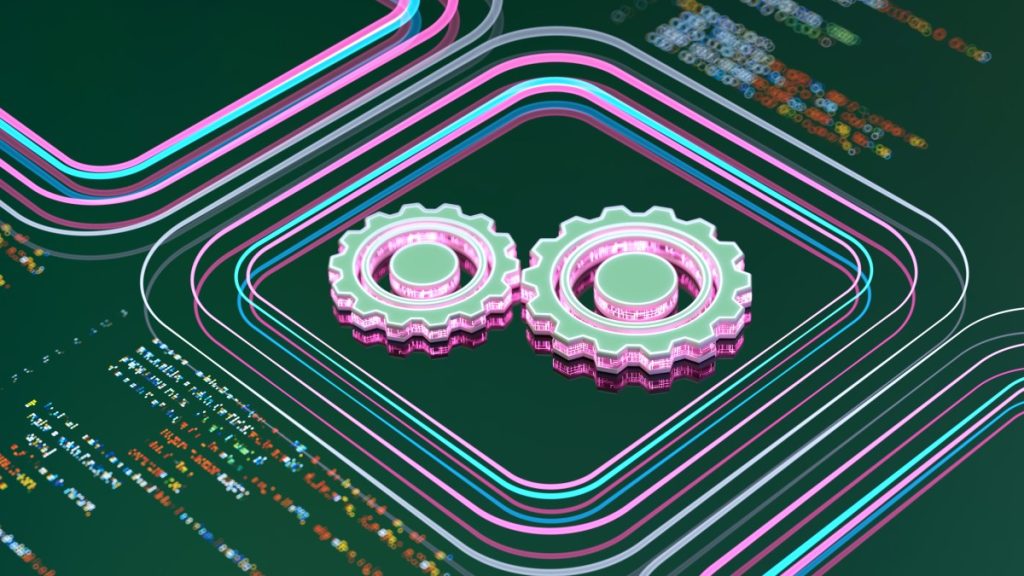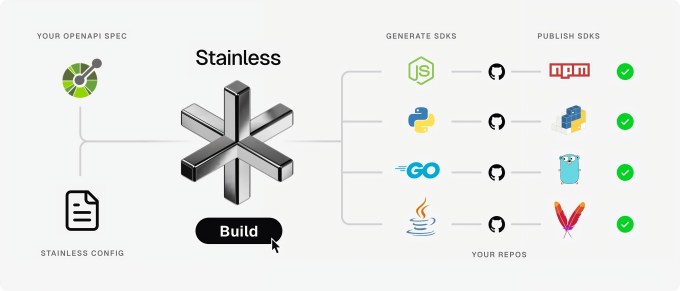Stainless helps build SDKs for OpenAI, Anthropic, and Meta

Devs expect tech vendors to supply software development kits, or SDKs, alongside their products to make it easier to create apps using those products. But many vendors only offer APIs, which are simply protocols that enable software components to communicate with each other.
Alex Rattray, the founder of Stainless, thinks AI can assist, here. Stainless uses a compiler to generate SDKs from APIs automatically, largely on the fly.
As Rattray explained to TechCrunch, without an SDK, API users are forced to read API docs and build everything themselves. Yet there isn’t an easy way for vendors to create SDKs for their APIs at scale.
Stainless takes in an API spec and generates SDKs in a range of programming languages including Python, TypeScript, Kotlin, and Go. As APIs evolve and change, Stainless’ platform pushes those updates with options for versioning and publishing changelogs.
While a typical vendor might have in-house devs building libraries in various languages to connect to their API, Stainless uses AI to produce an initial config, which teams can then fine-tune to their API. Rattray asserts that this avoids problems like libraries becoming inconsistent or outdated, and can drive quicker upgrades and faster time to integration.
“We’re quickly entering a world where everyone has access to an expert-level engineer in their pocket,” he said. “With that shift, every company with a website will see their APIs grow from a power-user feature to a primary interface for all users, and companies without excellent APIs will become as anachronistic as a restaurant without a website.”
Much of Stainless’ functionality was informed by Rattray’s experiences in the industry.

Rattray, an economics major, picked up programming on the side while at UPenn, which led to a job at Stripe as an engineer on the developer platform team. At Stripe, Rattray helped to revamp API documentation and launch the system that powers Stripe’s API client SDK.
Stainless isn’t the only API-to-SDK generator out there. There’s LibLab and Speakeasy, to name a couple, plus longstanding open source projects such as the OpenAPI Generator.
But Rattray argues that Stainless delivers more “polish” thanks to its compiler.
“While the OpenAPI Generator exists, many customers mention having tried it,” Rattray said, “and it having fallen extremely short on code quality in its outputs — often requiring much more work to edit the output and bring it up to snuff.”
It’s perhaps that polish that attracted tech giants like OpenAI, Anthropic, and Meta to Stainless’ platform, as well as Runway, Groq, Cerebras, Modern Treasury, and Cloudflare. Rattray claims that Stainless has “hundreds” of paying customers today, and that its SDKs are being downloaded tens of millions of times every week.
Most customers are paying for Stainless’ enterprise tier, which comes with additional white-glove services and AI-specific functionality. Publishing a single SDK is free. But companies have to fork over between $250 a month and $30,000 a year for multiple SDKs spanning multiple programming languages.
Rattray has said the company’s annual recurring revenue is hovering around $1 million, and that Stainless is nearing profitability. To grow, Stainless recently closed a $25 million Series A led by a16z with participation from Sequoia, The General Partnership, Felicis, Zapier, and MongoDB.
Bringing its total raised to ~$35 million, the new cash will go toward expanding New York-based Stainless’ 20-person team, Rattray said.
“The business is very efficient, but we decided to raise to accelerate development toward our vision,” he added. “SDKs are just the first act — our vision is to build the comprehensive platform developers turn to for everything API-related.”
Source: https://techcrunch.com


